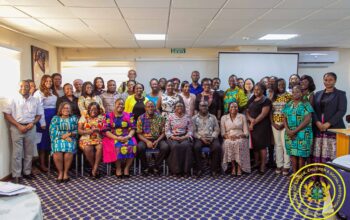Justice William Atuguba, a former Supreme Court Judge, has recommended civic activism to combat corruption in Ghana. He emphasized that citizens need to be actively involved in demanding accountability from public officials and ensuring that the rule of law is upheld. According to Atuguba, the fight against corruption is not solely the responsibility of government institutions but requires the active participation of the public. Civic activism, in this context, involves citizens taking on a more engaged role in monitoring governmental actions, exposing corruption, and advocating for transparency.
Atuguba’s recommendation highlights the crucial role of civil society in fostering good governance. By being vigilant and holding public officials accountable, citizens can contribute to creating a culture of integrity and discouraging corrupt practices. His call is an urgent reminder that systemic change requires the collective effort of both state institutions and the populace.
Justice William Atuguba, in his recent comments, stressed that the government must prioritize the welfare of the masses over the personal interests of those in power, as the latter often leads to corruption. He emphasized the importance of civic activism, stating that since the people are the source of power, they must actively ensure that this power is used for their benefit. In his words, “The best way is civic activism; the people gave the power, so they must rise up and ensure that the power is truly exercised for their benefit and insist on it.”
Justice Atuguba acknowledged that while the movement for accountability and transparency is gaining traction, it has come later than desired. However, he remains optimistic, noting that the presence of civil society organizations and growing public demonstrations, such as the “Fix the Country” protests, signal a positive shift. He pointed out that these movements are vital in the fight against corruption, urging that more voices must be raised for accountability to truly take root in Ghana.
Justice William Atuguba emphasized that the fight against corruption in Ghana can be successful if leadership cooperates with the people and actively prioritizes the issue. He pointed out that the country already has a sufficient legal framework to combat corruption, but the real challenge lies with leadership. According to Atuguba, those in authority are not prioritizing the fight against corruption, which contributes to the current situation.
He stated, “We have several laws already to win the battle; we don’t need more,” adding that with effective leadership, Ghana would not be in its current predicament. He argued that the core issue revolves around a genuine commitment to good governance, trust in the people, and strong leadership, which would, in turn, positively impact the institutions meant to uphold integrity and accountability. Atuguba believes that only with such leadership can the country successfully tackle its corruption problem. Justice William Atuguba lamented that Ghana, along with many other African countries, lacks a true commitment to “constitutionalism” and the “rule of law,” which he identified as key factors driving corruption in society. He expressed concern that these foundational principles, which are essential for good governance and accountability, are not being fully embraced or respected by those in power. Without adherence to constitutional values and the rule of law, corruption thrives, as it enables those in authority to act without proper checks and balances.
Atuguba’s statement underscores the importance of upholding the constitution and ensuring that laws are applied fairly and consistently. He suggested that if Ghana and other African nations were more committed to these principles, it could significantly reduce the prevalence of corruption and improve the governance system.









